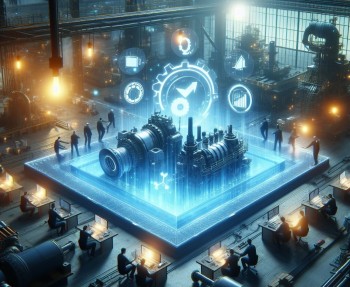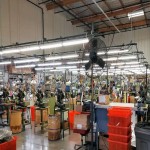Challenges and Problems manufacturers face
Manufacturing is a vital sector of any economy because it is responsible for producing the goods that consumers and businesses rely on. However, manufacturers face a number of significant challenges that can make it difficult to operate profitably and stay competitive. These challenges include cost pressures, global competition, increased regulation, digital transformation and Industry 4.0, and a shortage of skilled workers.
Global Competition and Cost Pressures
One of the major problems manufacturers face is managing costs and staying competitive in a global marketplace. This can include everything from raw materials and labor costs to shipping and logistics expenses. As manufacturers operate in a globalized economy, they often have to contend with competition from other countries where labor and production costs may be lower. This can make it difficult for manufacturers to stay competitive on price and can put pressure on their profit margins. One approach to address this issue is focusing on efficiency increasing and productivity in the manufacturing process by implementing lean manufacturing principles such as Six Sigma and Kaizen. Additionally, companies can explore automation and other technologies that can help to reduce labor costs and increase productivity.
Navigating Complex Regulations
Another challenge manufacturers face is navigating a complex web of regulations related to everything from environmental impact to product safety. These regulations can be costly to comply with and can also make it difficult for manufacturers to operate efficiently. To address this challenge, manufacturers can work with regulatory agencies to understand the requirements and develop a compliance plan. They can also work with industry associations and other organizations to advocate for more reasonable and streamlined regulations. Additionally, companies can invest in environmental management systems, such as ISO 14001, to demonstrate their commitment to environmental responsibility and reduce the risk of non-compliance.
Digital Transformation and Industry 4.0
Beside the previous challenges, in recent years, manufacturers have been facing the pressure of digital transformation and Industry 4.0. This requires investment in technology and data management, such as automation, IoT, machine learning, and other advanced technologies. This can be a significant costly for manufacturers, especially for small and medium-sized enterprises, but it is also necessary to stay competitive in a fast-paced and ever-changing market. To address this challenge, manufacturers can take advantage of new technologies and data management to streamline their operations, improve efficiency and flexibility, and increase their competitiveness. This includes automation, IoT, machine learning, and other advanced technologies that can improve efficiency, reduce costs, and enhance the quality of products. Additionally, companies can invest in data analytics and visualization tools to gain insights into their operations and make more informed decisions.
Shortage of Skilled Workers
Finally, a shortage of skilled workers can also be a major problem for manufacturers. The industry is facing an aging workforce and a lack of new talent entering the field. This can make it difficult for manufacturers to find and retain the skilled workers they need to grow and compete. To address this challenge, manufacturers can invest in training and development programs to upskill existing employees and attract new talent. This can include apprenticeship programs, on-the-job training, and other initiatives that provide workers with the skills they need to succeed in the manufacturing industry. Additionally, companies can offer competitive compensation and benefits packages, as well as flexible work arrangements, to attract and retain skilled workers. Additionally, manufacturers can also look into various forms of financing, such as invoice financing or asset-based lending, to ease cash flow and fund their growth plans.
Conclusion
As conclusion, manufacturers face a variety of significant challenges that can make it difficult to operate profitably and stay competitive. These challenges include cost pressures, global competition, increased regulation, digital transformation and Industry 4.0, and a shortage of skilled workers. Manufacturers will need to find ways to navigate these challenges in order to remain successful in the future. This may include investing in technology and automation, developing new business models, navigating regulations, investing in training and development programs, and finding ways to attract and retain skilled workers. By implementing these strategies, manufacturers can mitigate.













